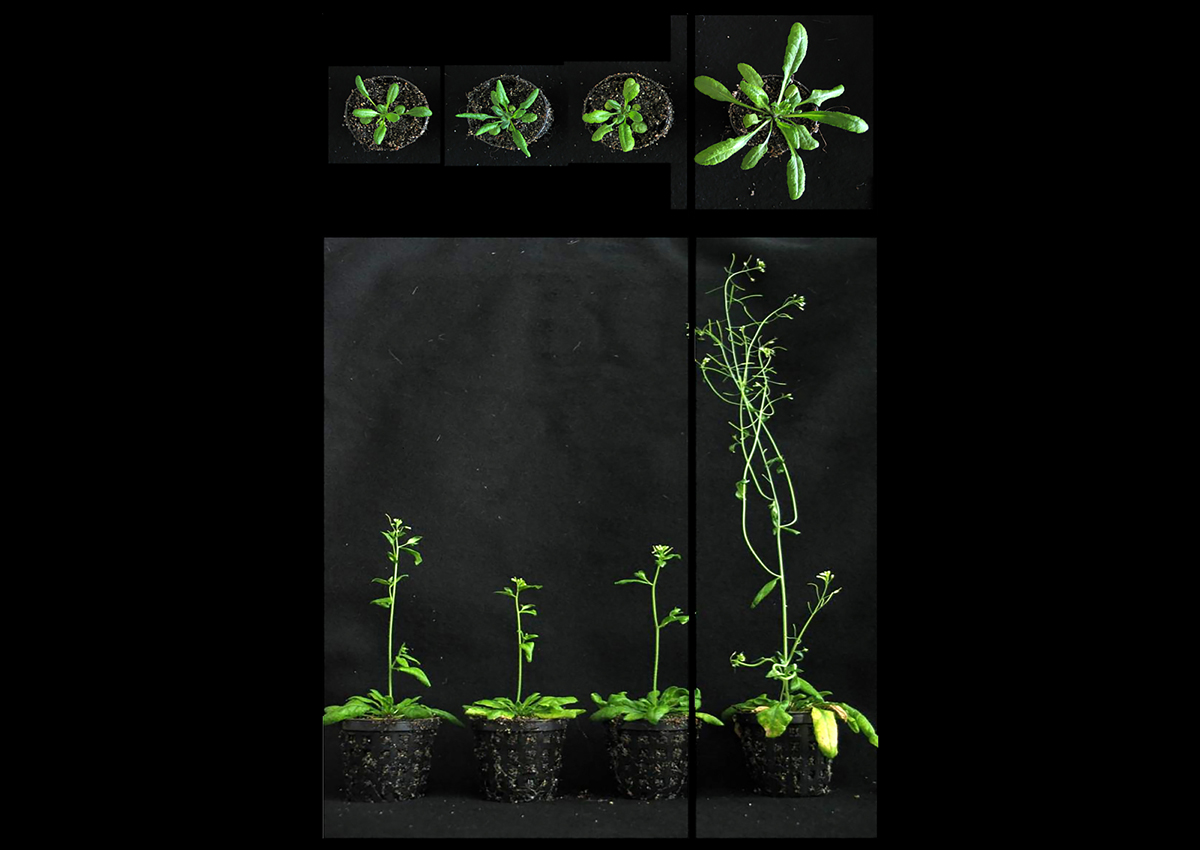
Researchers Discover Protein that Turns Plants into Dwarfs
August 24, 2022| |
Researchers from Kiel University, led by Professor Frank Kempken, have characterized a novel component of plant PPR proteins previously thought to be primarily involved in RNA maturation in mitochondria. The researchers have identified a new protein that is part of the mitochondrial ribosomes and is involved in protein biosynthesis.
This new protein is part of the mitochondrial ribosomes and is involved in protein biosynthesis. Although the exact mechanism is still unknown, the researchers showed that the protein probably interferes with growth regulation. They observed that when it was artificially switched off, Arabidopsis exhibits delayed and dwarfed growth while the plant maintains full functionality.
PPR proteins are encoded by genes in the cell nucleus and transferred to the ribosomes as messenger RNA and translated into proteins. The synthesized PPR proteins are then transported to the mitochondria, where they are involved in controlling various life processes. Recently, researchers have discovered that the subgroup rPPR proteins occur in mitochondrial ribosomes. To better understand the regulation of genetic information in today's plants, the Kiel University researchers analyzed a specific common mitochondrial rPPR protein, which is encoded by the DWEORG1 gene.
The researchers found that plants with experimentally knocked down DWEORG1 showed reduced translation efficiency. However, DWEORG1 does not seem to play a fundamental role in the organism because the manipulated plants showed growth retardation only and overall smaller size, and their shape and life processes were not affected.
For more details, read the article on the Kiel University website.
| |
You might also like:
- Semi-dwarf Rice Developed Using CRISPR-Cas9
- GA20ox-2 Targeted Mutation Produces Semi-dwarf Rice
- Researchers Develop Dwarf Maize with Better Yielding Capacity by Controlling Gibberellin Levels
Biotech Updates is a weekly newsletter of ISAAA, a not-for-profit organization. It is distributed for free to over 22,000 subscribers worldwide to inform them about the key developments in biosciences, especially in biotechnology. Your support will help us in our mission to feed the world with knowledge. You can help by donating as little as $10.
-
See more articles:
-
News from Around the World
- Mandatory GE Food Labeling Impacts Customer Purchases, Study
- Researchers Prove Multigene Bioengineering of Photosynthesis Increases Soybean Yields
- Experts Discover and Start to Crack the Epigenetic Code
- CIMMYT Research Reveals Afghan Wheat's Rust Resistance
- Risks and Trust Among Factors That Affect GM Rice’s Appeal to Chinese Consumers
- Researchers Discover Protein that Turns Plants into Dwarfs
-
Research Highlights
- Biosensors Detect Non-visible Rot in Potatoes
- Drought Tolerant Poplar Trees Perform Well in Field Trials
-
Read the latest: - Biotech Updates (January 28, 2026)
- Gene Editing Supplement (January 28, 2026)
- Gene Drive Supplement (February 22, 2023)
-
Subscribe to BU: - Share
- Tweet

